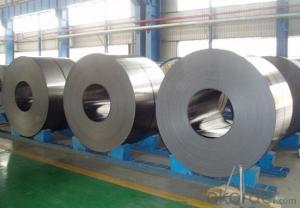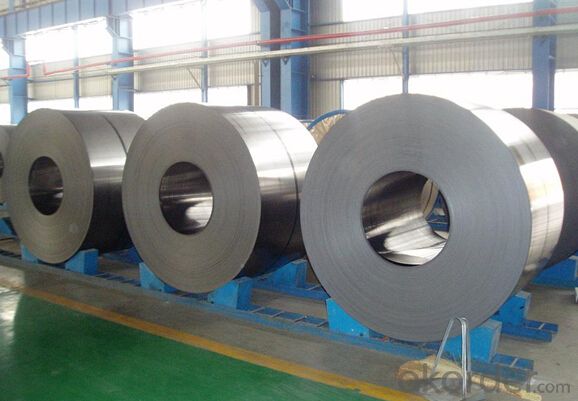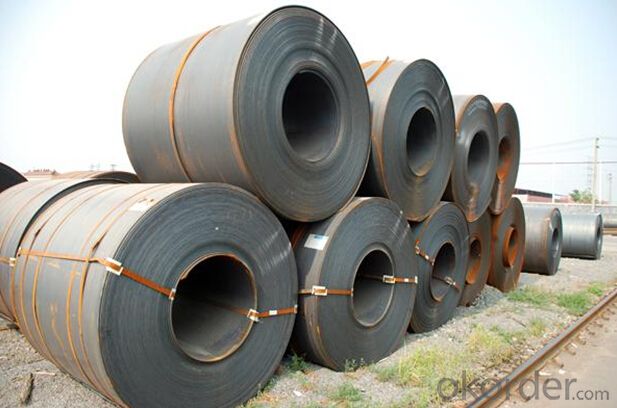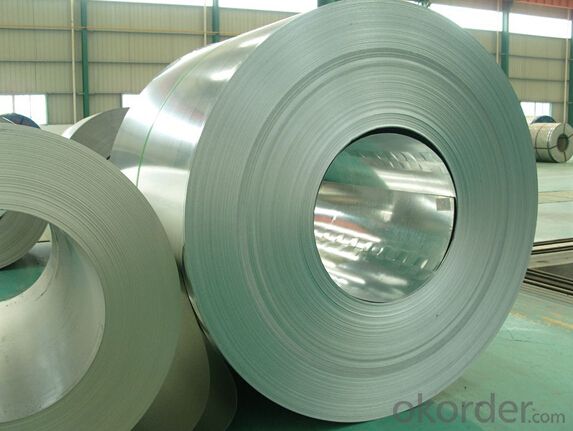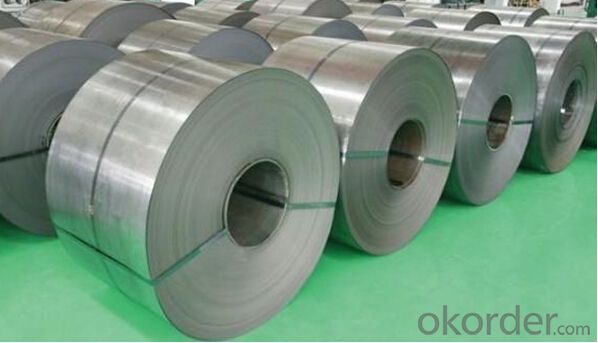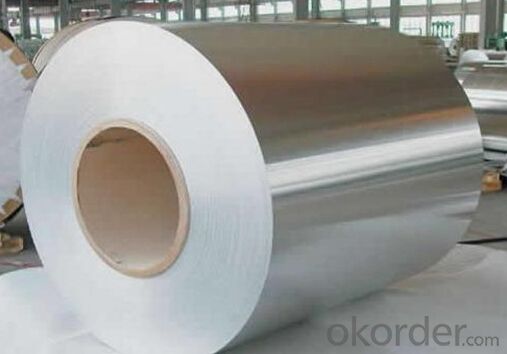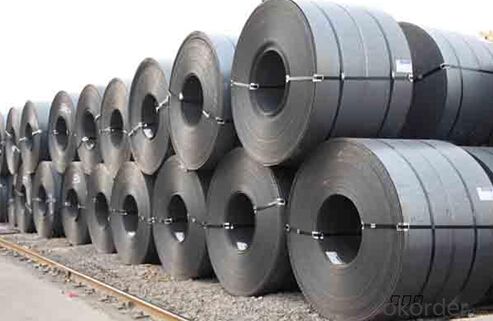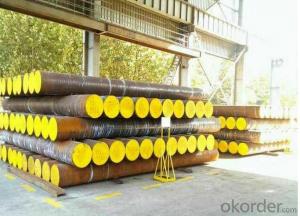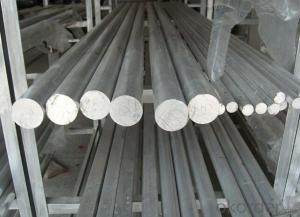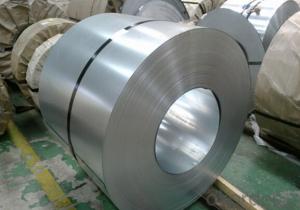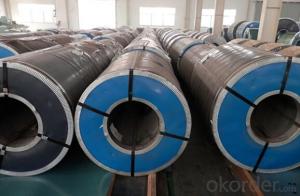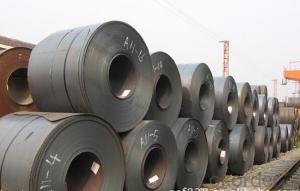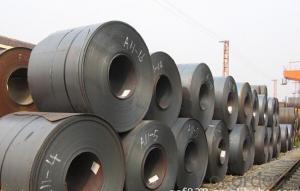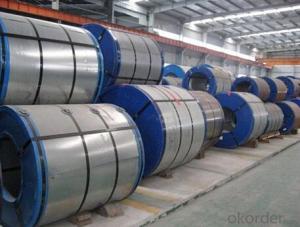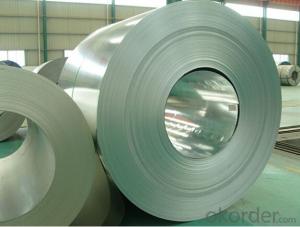Grade EN10130-DC04 Galvanized Steel in Coil
- Loading Port:
- Tianjin
- Payment Terms:
- TT OR LC
- Min Order Qty:
- 3 m.t.
- Supply Capability:
- 10000 m.t./month
OKorder Service Pledge
OKorder Financial Service
You Might Also Like
Specification
Grade EN10130-DC04 Galvanized Steel Coil
Specification of Grade EN10130-DC04 Galvanized Steel Coil
1. Galvanized Steel Coil
(1) Width: 600-1570mm
(2) Thickness: 0.13-5.0mm
(3) Grade: JIS G3302-SGCC-SGC570, SGCH (full hard-G550), SGHC-SGH540
EN10346-DX51D+Z, DX53D+Z, S250GD-S550GD
STM A653-CS-B, SS255-SS550
(4) Zinc Coating: Z40g/m2~Z500g/m2 (both side total coating thickness)
2. Galvalume Steel Coil
(1) Width: 600~1500mm
(2) Thickness: 0.15~2.30mm
(3) Grade: JIS G3321-SGLCC, SGLC400-570, (G550)
EN10346-DX51D+AZ, DX53D+AZ, S250-S550
ASTM A792M CS-B, SS255-SS550
(4) AZ Coating: AZ50~AZ185g/m2
3. Prepainted Galvanized Steel Coil (PPGI)
(1) Width: 600~1250mm
(2) Thickness: 0.19~1.50mm
(3) Grade: JIS G3312-CGCC, CGC340-570, (G550)
ASTM A755M CS-B, SS255-SS550
(4) Zinc Coating: Z40g/m2~Z500g/m2 (both side total coating thickness)
4. Prepainted Galvanized Steel Coil (PPGL)
(1) Width: 600~1250mm
(2) Thickness: 0.20~1.50mm
(3) Grade: JIS G3322-CGLCC, CGLC340-570, (G550)
ASTM A755M CS-B, SS255-SS550
(4) AZ Coating: AZ50~AZ185g/m2 (both side total coating thickness)
5. Cold Rolled Steel Coil (Soft) (for further information, pls click the product name)
(1) Width: 600~1570mm
(2) Thickness: 0.13~2.50mm
(3) Grade: JIS G3141-SPCC-SD, SPCD-SD, SPEC-SD
JIS G3135-SPFC 340/390/440
EN10130-DC01, DC03, DC04
SAE1006, SAE1008
ASTM A424-TypeⅡ
6. Cold Rolled Steel Coil (Full Hard) (for further information, pls click the product name)
(1) Width: 600~1570mm
(2) Thickness: 0.13~2.50mm
(3) Grade: JIS G3141-SPCC-1B, SPCC-1D
7. Hot Rolled Steel Coil
(1) Width: 1000~1524mm
(2) Thickness: 1.20~16.5mm, other thickness can be negotiation
(3) Grade: JIS G3101-SS400, JIS G3132-SPHT1/2/3, ASTM A36, Q195, Q235 etc.
Company Introduction of the Grade EN10130-DC04 Galvanized Steel Coil
CNBM International Corporation is the most import and export platform of CNBM group(China National Building Material Group Corporation) ,which is a state-owned enterprise, ranked in 270th of Fortune Global 500 in 2015.
With its advantages, CNBM International are mainly concentrate on Cement, Glass, Iron and Steel, Ceramics industries and devotes herself for supplying high quality series of refractories as well as technical consultancies and logistics solution.
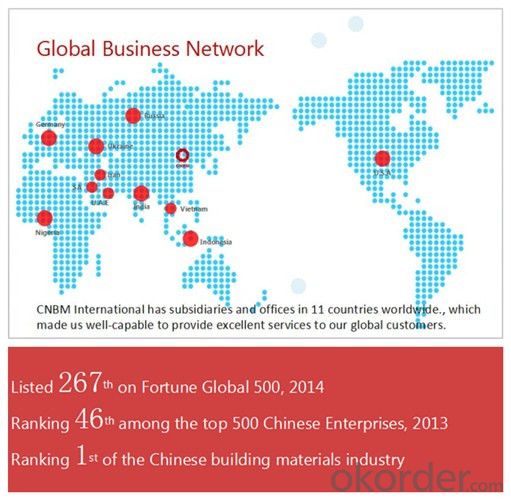
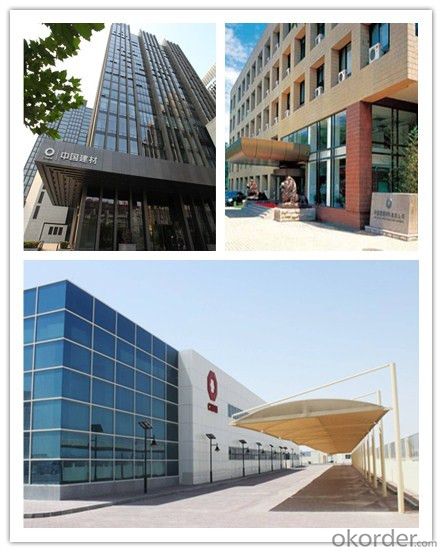
Packaging & Delivery of the Grade EN10130-DC04 Galvanized Steel Coil
Packaging Detail | Sea worthy packing /as per customer's packing instruction |
Delivery Detail | 15 ~ 40 days after receiving the deposit |
Products Show:
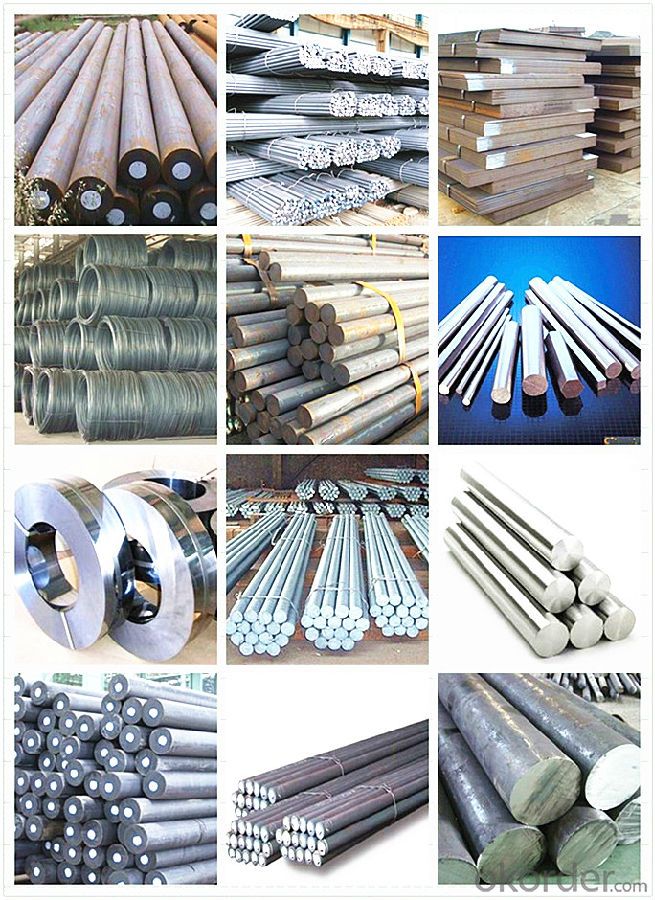
FAQ:
Are you a trading company or manufacturer? | Manufacturer |
What’s the MOQ? | 3 metric ton |
What’s your delivery time? | 15-35 days after downpayment received |
Do you Accept OEM service? | Yes |
what’s your delivery terms? | FOB/CFR/CIF |
What's the Payment Terms? | 30% as deposit,70% before shipment by T/T |
Western Union acceptable for small amount. | |
L/C acceptable for large amount. | |
Scrow ,Paybal,Alipay are also ok | |
Why choose us? | Chose happens because of quality, then price, We can give you both. Additionally, we can also offer professional products inquiry, products knowledge train (for agents), smooth goods delivery, excellent customer solution proposals. |
What's your available port of Shipment? | Main Port, China |
What’s your featured services? | Our service formula: good quality+ good price+ good service=customer's trust
|
Where are your Market? | Covering more than 160 countries in the world |
- Q: What are the main applications of special steel in the energy storage industry?
- Special steel is extensively used in the energy storage industry for various applications. Some of the main applications include the manufacturing of high-performance battery components, such as battery casings, terminals, and current collectors. Special steel is also used in the production of energy storage system components like fuel cells, hydrogen storage tanks, and pressure vessels. Additionally, special steel is utilized in the construction of infrastructure for energy storage facilities, such as pipelines, storage tanks, and structural supports. Overall, special steel plays a vital role in enabling efficient and durable energy storage systems in the industry.
- Q: What are the key alloying elements used in special steel?
- The key alloying elements used in special steel vary depending on the specific application and desired properties. However, some of the commonly used alloying elements in special steel include chromium, nickel, molybdenum, vanadium, tungsten, and cobalt. Chromium is often added to improve the steel's corrosion resistance and to enhance its hardness and wear resistance. Nickel is another important alloying element that increases the steel's strength, toughness, and corrosion resistance. Molybdenum is commonly used to improve the steel's high-temperature strength, creep resistance, and resistance to corrosion by certain chemicals. Vanadium is added to increase the steel's strength, toughness, and wear resistance, particularly at high temperatures. Tungsten is another element used for improving the steel's high-temperature strength and wear resistance. Cobalt is often added to enhance the steel's strength and toughness, especially at elevated temperatures. These alloying elements are carefully selected and added in specific proportions to achieve the desired properties for different applications, such as in aerospace, automotive, energy, and tooling industries. By incorporating these alloying elements, special steel can be tailored to meet specific performance requirements, making it suitable for a wide range of demanding applications.
- Q: What are the different surface finishing techniques used for special steel?
- Some of the different surface finishing techniques used for special steel include electroplating, powder coating, galvanizing, passivation, and mirror polishing.
- Q: How does special steel contribute to improving product reliability in critical applications?
- Special steel contributes to improving product reliability in critical applications by providing enhanced strength, durability, and resistance to corrosion and wear. This high-performance material ensures that critical components can withstand extreme conditions, such as high temperatures or heavy loads, without compromising performance or safety. Additionally, special steel's precise composition and manufacturing techniques allow for tight tolerances and consistent quality, minimizing the risk of failure or malfunction. Ultimately, its use in critical applications enhances product reliability, ensuring the smooth operation and longevity of essential equipment and systems.
- Q: Can special steel be used in the railway industry?
- Yes, special steel can be used in the railway industry. Special steel alloys are often utilized in the manufacturing of railway components such as rails, wheels, and axles. These alloys possess enhanced mechanical properties, including increased strength, durability, and resistance to wear and fatigue. This allows the railway infrastructure to withstand heavy loads, high-speed trains, and harsh operating conditions, ensuring the safety and reliability of railway systems.
- Q: What are the requirements for special steel used in military applications?
- In order to ensure optimal performance and durability in the field, special steel utilized in military applications must meet specific criteria. These criteria encompass: 1. Superior strength: Military applications often entail extreme conditions, including heavy loads, impacts, and shocks. To withstand these forces without deformation or failure, special steel employed in these applications must possess high strength. 2. Exceptional toughness: The steel should exhibit remarkable toughness to resist cracking or fracturing when subjected to high-stress situations. This is crucial for safeguarding the well-being of military personnel and equipment. 3. Resistance to corrosion: Military operations can occur in diverse environments, such as marine or coastal areas, where exposure to moisture, saltwater, and other corrosive elements is prevalent. To maintain its structural integrity over time, special steel employed in military applications must possess good corrosion resistance. 4. Heat resistance: Military equipment frequently encounters elevated temperatures due to friction, combustion, or exposure to explosives. The steel used must possess good heat resistance to prevent deformation or loss of strength under such conditions. 5. Wear resistance: Military equipment undergoes frequent use, abrasive contact, and potential impacts with foreign objects. Therefore, special steel employed in these applications must exhibit excellent wear resistance to minimize damage and extend the lifespan of the equipment. 6. Machinability: Special steel utilized in military applications should be easily machinable and processable into various shapes and sizes. This ensures that it can be tailored to specific requirements and seamlessly integrated into different military systems. 7. Cost-effectiveness: While meeting all the aforementioned requirements, special steel utilized in military applications should also be cost-effective. It must strike a balance between performance and cost to ensure efficient resource utilization. By fulfilling these requirements, special steel employed in military applications can deliver the necessary strength, durability, and reliability required for military operations, thereby ensuring the safety and effectiveness of military personnel and equipment.
- Q: What are the different surface cleaning methods for special steel?
- There are several surface cleaning methods for special steel, including mechanical cleaning, chemical cleaning, and electrochemical cleaning. Mechanical cleaning involves using abrasive materials or tools to physically remove dirt, rust, or other contaminants from the steel's surface. Chemical cleaning involves using specialized cleaning agents or solvents to dissolve and remove any unwanted substances. Electrochemical cleaning utilizes an electric current and specific electrolytes to remove dirt and corrosion from the steel's surface. Each method has its advantages and is chosen based on the specific requirements and condition of the special steel.
- Q: How is mold steel used in injection molding?
- Mold steel is used in injection molding to create the molds or tooling that are used to produce plastic parts. The steel is used to form the cavity or core of the mold, which determines the shape of the final product. Mold steel is chosen for its high strength, durability, and heat resistance to withstand the high pressures and temperatures involved in the injection molding process.
- Q: How does special steel perform in additive manufacturing applications?
- Special steel performs well in additive manufacturing applications due to its high strength, durability, and resistance to wear and corrosion. The unique properties of special steel, such as its ability to withstand high temperatures and extreme environments, make it an ideal material for 3D printing processes. Additionally, the flexibility and customization offered by additive manufacturing allows for the creation of complex geometries and intricate designs, further enhancing the performance of special steel in various applications.
- Q: How does special steel contribute to the magnetic properties of products?
- Special steel contributes to the magnetic properties of products through its unique composition and structure. Special steel, also known as alloy steel, contains specific elements such as nickel, chromium, manganese, and molybdenum, which alter its magnetic behavior. These elements can enhance or suppress the magnetism of the steel, depending on the desired application. For example, when nickel is added to steel, it increases its magnetic permeability, making it more receptive to magnetic fields. This property is particularly useful in applications like transformers, where the steel core needs to efficiently conduct magnetic flux. Similarly, the addition of other magnetic elements like cobalt or iron can also enhance the magnetic properties of special steel. On the other hand, certain elements can reduce or eliminate the magnetic properties of steel. Chromium, for instance, is known for its anti-magnetic characteristics. By adding chromium to steel, it can decrease its magnetic permeability, making it suitable for applications that require non-magnetic qualities, such as medical equipment or electronics. Furthermore, the structure of special steel also plays a crucial role in its magnetic properties. Through various heat treatment processes, the steel's crystalline structure can be manipulated, affecting its magnetization. For instance, by annealing the steel, the crystal grains can be made larger, reducing its magnetization. Conversely, cold working or quenching the steel can lead to a finer grain structure, enhancing its magnetic properties. In summary, special steel contributes to the magnetic properties of products by incorporating specific elements that either enhance or suppress magnetism, depending on the application requirements. Additionally, the steel's structure can be modified through heat treatments, further influencing its magnetization. The ability to tailor the magnetic properties of special steel makes it a valuable material for various industries, including telecommunications, energy, and electronics.
Send your message to us
Grade EN10130-DC04 Galvanized Steel in Coil
- Loading Port:
- Tianjin
- Payment Terms:
- TT OR LC
- Min Order Qty:
- 3 m.t.
- Supply Capability:
- 10000 m.t./month
OKorder Service Pledge
OKorder Financial Service
Similar products
Hot products
Hot Searches
Related keywords
